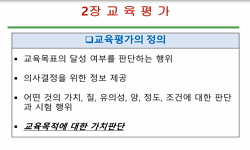In this paper, the characteristics of the historiographer(史官) as an archivist have been researched. According to the current documentary management law, an archivist has to have some appropriate qualifications. Handing down to posterity, the judgm...
http://chineseinput.net/에서 pinyin(병음)방식으로 중국어를 변환할 수 있습니다.
변환된 중국어를 복사하여 사용하시면 됩니다.
- 中文 을 입력하시려면 zhongwen을 입력하시고 space를누르시면됩니다.
- 北京 을 입력하시려면 beijing을 입력하시고 space를 누르시면 됩니다.
https://www.riss.kr/link?id=A75172581
- 저자
- 발행기관
- 학술지명
- 권호사항
-
발행연도
2005
-
작성언어
Korean
-
주제어
사관 ; 아키비스트 ; 수집 ; 평가 ; 자료 보존 ; historiographer ; archivist ; collection ; evaluation ; preservation of documentaries
-
자료형태
학술저널
-
수록면
55-84(30쪽)
- 제공처
-
0
상세조회 -
0
다운로드
부가정보
다국어 초록 (Multilingual Abstract)
In the same manner, to be a historiographer, there should be several conditions or qualifications as well. Above all, they should have knowledge, scholarly attainments and social conditions as a Confucianist. They should pass the test of liberal arts, have the ability to narrate history, broad historical knowledge, can face up to the reality to judge right from wrong, should be from the noble class, and should be honest not to be contrary to public opinions. So the historiographer appointed by these strict conditions and procedures has a privilege not to be interrogated when his faults are not heavy.
Historiographers in Joseon dynasty carried out the tasks of collection, maintenance, compilation, evaluation, and preservation of documentaries. The archivists of now carry out the collection of registered documentaries from all the administrations, but the historiographers
directly participated in producing records. They recorded all of the administrative works done by not only the King, but also by the central and local governments. They collected data to compile administrative businesses, kinds of previous businesses, and chronicles. Seen above, they not only preserved the documentaries but also produced the records directly.
The documentaries recorded and compiled by the historiographers were made based on the historical one among the values of administrative, historical, and informative which contemporary
documentaries aim for. That's because the records were made based on the Confucian theory of history description that the historical records could be used as a mirror for the descendants. Therefore the facilities for keeping the government records were not located downtown, but in the
deep mountain. Because they were not for the public to read, but for safe keeping and preservation.
In evaluating the documentaries, archivists decide the maintenance and abolition of them objectively based on the administrative and historical values, but that of historiographers is a little different from archivists. They described affairs and persons in chronicles and add historical
essays on them as well; therefore historiographers did more subjective and direct attempts than archivists when performing evaluation.
In this paper, the characteristics of the historiographer(史官) as an archivist have been researched. According to the current documentary management law, an archivist has to have some appropriate qualifications. Handing down to posterity, the judgment of an archivist is very important because it decides the maintenance of the records themselves, and further that of the personal historical records personal or national ones.
In the same manner, to be a historiographer, there should be several conditions or qualifications as well. Above all, they should have knowledge, scholarly attainments and social conditions as a Confucianist. They should pass the test of liberal arts, have the ability to narrate history, broad historical knowledge, can face up to the reality to judge right from wrong, should be from the noble class, and should be honest not to be contrary to public opinions. So the historiographer appointed by these strict conditions and procedures has a privilege not to be interrogated when his faults are not heavy.
Historiographers in Joseon dynasty carried out the tasks of collection, maintenance, compilation, evaluation, and preservation of documentaries. The archivists of now carry out the collection of registered documentaries from all the administrations, but the historiographers
directly participated in producing records. They recorded all of the administrative works done by not only the King, but also by the central and local governments. They collected data to compile administrative businesses, kinds of previous businesses, and chronicles. Seen above, they not only preserved the documentaries but also produced the records directly.
The documentaries recorded and compiled by the historiographers were made based on the historical one among the values of administrative, historical, and informative which contemporary
documentaries aim for. That's because the records were made based on the Confucian theory of history description that the historical records could be used as a mirror for the descendants. Therefore the facilities for keeping the government records were not located downtown, but in the
deep mountain. Because they were not for the public to read, but for safe keeping and preservation.
In evaluating the documentaries, archivists decide the maintenance and abolition of them objectively based on the administrative and historical values, but that of historiographers is a little different from archivists. They described affairs and persons in chronicles and add historical
essays on them as well; therefore historiographers did more subjective and direct attempts than archivists when performing evaluation.
목차 (Table of Contents)
- Ⅰ. 머리말
- Ⅱ. 史官의 임명-기록물 관리자로서의 자격과 대우-
- 1. 조선시대의 사관 제도
- 2. 사관의 선발과 임명
- Ⅲ. 사관의 역할-기록물 관리자로서의 업무 수행-
- Ⅰ. 머리말
- Ⅱ. 史官의 임명-기록물 관리자로서의 자격과 대우-
- 1. 조선시대의 사관 제도
- 2. 사관의 선발과 임명
- Ⅲ. 사관의 역할-기록물 관리자로서의 업무 수행-
- 1. 기록의 수집과 관리
- 2. 기록물의 편찬
- 3. 기록물의 보관
- Ⅳ. 사관의 역사 의식-기록물의 평가 업무를 중심으로-
- Ⅴ. 맺음말
- [Abstract]
동일학술지(권/호) 다른 논문
-
- 대동사학회
- 최범호
- 2005
-
- 대동사학회
- 李熙煥
- 2005
-
- 대동사학회
- 김승대
- 2005
-
- 대동사학회
- 송만오
- 2005




 eArticle
eArticle






